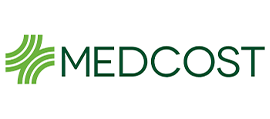For those living with OCD, the experience can be far more debilitating than what is portrayed in popular media. While shows and movies paint pictures of neat freaks and those who are simply obsessed with cleanliness, people with an actual diagnosis may deal with symptoms that are much harder to handle. Luckily, Banyan’s Pompano OCD treatment center is equipped with the tools necessary to help these individuals learn to manage their symptoms and live the life that they want to live.

Facts About OCD
The acronym OCD stands for obsessive-compulsive disorder, with 2.3% of American adults experiencing it at some point in their lifetime.1 It is a chronic disorder that sees sufferers struggling with uncontrollable, repetitive thoughts (obsessions) and behaviors (compulsions) that the person feels the need to perform over and over. Symptoms typically begin when a person is a teenager or young adult and can range in severity.
OCD is not the kind of condition that can be isolated or diagnosed with a physical exam. Instead, a patient must be diagnosed by a licensed mental health professional like a psychologist or psychiatrist. No matter how it manifests, a treatment plan for OCD must encompass all the aspects of the condition that the person struggles with, so they have the best chance at healing possible.
OCD Subtypes
Another fact that may surprise people is that obsessive-compulsive disorder does not affect people in just one way. A person’s OCD rituals can affect them in many ways. For one person, they may feel the need to check they locked the door 3 times out of fear. Another person might be unable to hold a loved one’s hand without running to wash it.
Other subtypes of OCD include:
- Relationship OCD – A person with this condition will struggle with obsessive and compulsive thoughts regarding a romantic relationship. The individual may experience intense doubts about their partnership, such as if their partner even likes them, or they might excessively worry about how to be a better partner.
- False Memory OCD – These individuals will struggle with consistent doubting thoughts about themselves and their life. This person may worry about something they have done in the past and wonder if this memory occurred. For instance, they may worry they stole something from a store without realizing it and obsess about it their entire day.
- Checking OCD – This is one of the most well-known subtypes and is categorized by a need to check something compulsively. This individual may feel that they will be the reason something bad happens if they are not continually checking to keep it from happening.
- Counting OCD – There are people who struggle so severely that they will be stuck in a position until they count to a certain, personally specified number. Internal counting can begin to manifest as physical tapping or even lead the person to complete a compulsive action the specific number of times they have set as an absolute.
Heal With Our Pompano Beach Treatment Center
Banyan is proud to offer Broward County mental health services that are equipped to address a variety of illnesses. Our OCD treatment center offers many effective programs that are designed to help patients overcome the symptoms they struggle with. It is especially important to seek help before symptoms lead a person to more drastic and destructive measures, like self-medicating with a substance. If this has already transpired and that person struggles with OCD and addiction, our dual-diagnosis rehab program gives them a chance to reclaim their lives and agency from both diseases.
To learn more about the options available for addiction and mental health treatment in Pompano, contact Banyan Treatment Center and speak with one of our specialists today.
Source
Related Reading
Other Treatment Options
Most Insurance Plans Accepted
At Banyan Pompano Detox, our goal is to make sure that anyone who needs treatment from drug and alcohol addiction is able to get the help needed to assist them on the road to recovery. If you don't have insurance contact us to inquire about alternate methods regarding treatment for yourself or a loved one.













